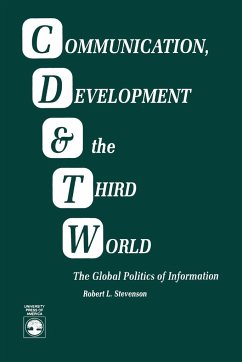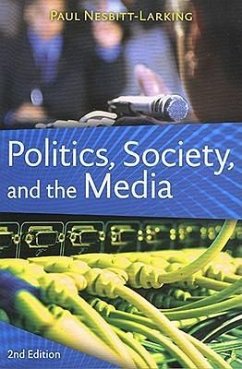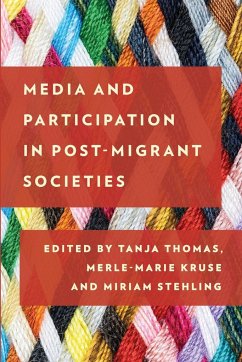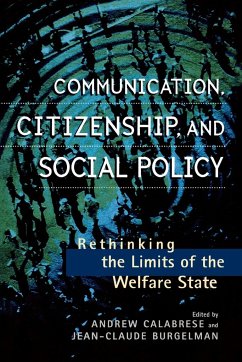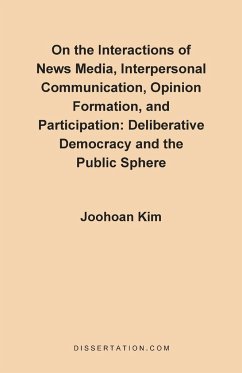
On the Interactions of News Media, Interpersonal Communication, Opinion Formation, and Participation
Deliberative Democracy and the Public Sphere
Versandkostenfrei!
Versandfertig in 1-2 Wochen
31,99 €
inkl. MwSt.

PAYBACK Punkte
16 °P sammeln!
discussions on public issues. Most scholars have discussed deliberative democracy within normative boundaries. However, based primarily on Katz's interpretation of Tarde, this study finds the concept of public sphere a useful framework for operationalizing the normative concept of deliberative democracy, since the four components of the public sphere-news media use, interpersonal communication, opinion formation, and political participation-provide us with empirically testable categories. This study tests the validity of theories of deliberative democracy through examining the inter-relationsh...
discussions on public issues. Most scholars have discussed deliberative democracy within normative boundaries. However, based primarily on Katz's interpretation of Tarde, this study finds the concept of public sphere a useful framework for operationalizing the normative concept of deliberative democracy, since the four components of the public sphere-news media use, interpersonal communication, opinion formation, and political participation-provide us with empirically testable categories. This study tests the validity of theories of deliberative democracy through examining the inter-relationships among the four components of the public sphere. Methodologically, it includes a set of 63 items to probe where people talk and what they talk about in their daily life. An experimental treatment (a "stop-and-talk" question) is also included in the survey to simulate the effects of real conversation. Through a set of data gathered from a nationwide survey, sufficient evidence was found to support the basic hypotheses: (1) news media use encourages people to have political conversation, (2) news media use and political conversation tend to enhance the quality of opinions (measured by consistency, opinionation, and consideredness), (3) news media use, political conversation, and enhanced opinions encourage political participation. The significance of this study is that: (1) unlike other media effects studies, its dependent variables are not just of opinion positions or attitude changes, but also opinion quality; (2) it does not consider media alone, but deals with the combined effects of interpersonal communication (conversation) and mass media (news media use); (3) it combines an experimental design with a nationwide survey; and (4) it assumes that the effects of mass media do not stop at people's attitudes, but are extended to their activities.






